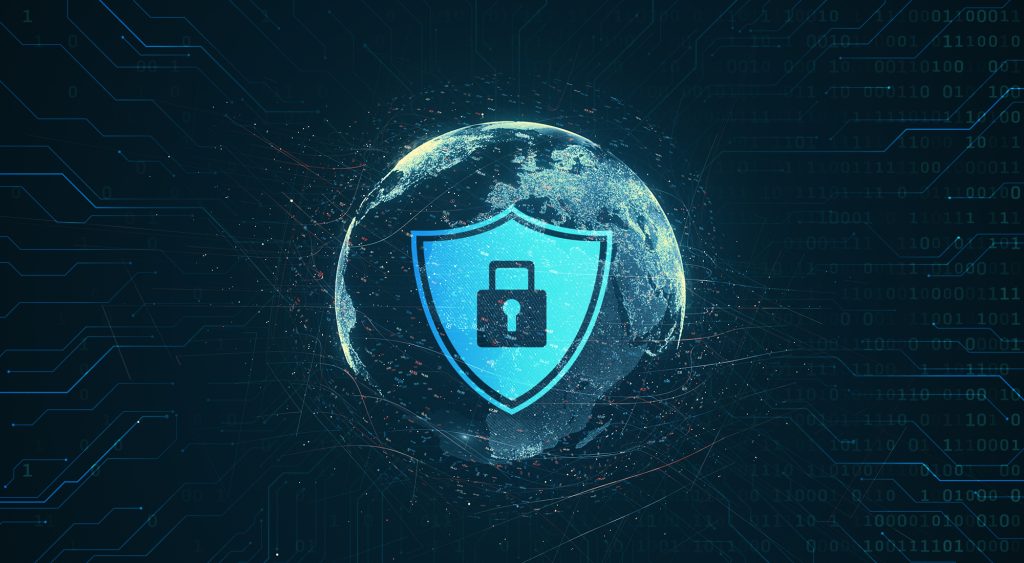
Your Roadmap to a Rewarding Career in Cybersecurity: Opportunities Await!
In today’s increasingly digital world, cybersecurity has become a fundamental aspect of protecting both personal and organizational data. With a growing number of cyberattacks and data breaches making headlines worldwide, cybersecurity professionals are now in more demand than ever before. Whether you’re considering a career in cybersecurity or looking to pivot into this field, it’s clear that opportunities are abundant—and the rewards are immense.
This career guide is designed to walk you through the necessary steps to build a successful cybersecurity career, from understanding the industry’s essentials to exploring future job opportunities and how you can make the most of them. Let’s dive into this cybersecurity roadmap and explore how you can seize the opportunities awaiting you in this exciting and ever-evolving industry.
Why Cybersecurity?
Before we dive into the specifics of the cybersecurity roadmap, let’s take a moment to understand why cybersecurity has become such a crucial career path.
1. The Ever-Growing Threat Landscape
As we continue to rely more heavily on technology, the digital landscape has become a prime target for cybercriminals. From data breaches to ransomware attacks, businesses and individuals face numerous risks every day. In fact, cybercrime is expected to cost the global economy $10.5 trillion annually by 2025, according to Cybersecurity Ventures.
Cybersecurity professionals play a critical role in protecting digital assets, safeguarding sensitive information, and keeping businesses operational. The more connected the world becomes, the more opportunities arise for cybersecurity experts to ensure these connections remain secure.
2. High Demand and Job Security
The cybersecurity job market is booming, and the demand for skilled professionals far exceeds the supply. According to the U.S. Bureau of Labor Statistics, the employment of information security analysts—a core cybersecurity role—is projected to grow 35% from 2021 to 2031, much faster than the average for all occupations. This means that there will be a consistent and growing demand for cybersecurity professionals over the next decade, offering tremendous job security.
The high demand for cybersecurity talent means that skilled professionals can often choose from a wide range of job opportunities, work in various industries, and expect competitive salaries.
3. Competitive Salaries
Cybersecurity professionals are among the highest-paid in the tech industry. Entry-level positions such as cybersecurity analysts often earn a competitive salary, but as you gain experience and move into more specialized roles, the potential for higher earnings increases significantly. For example, a Chief Information Security Officer (CISO) can earn six figures, with salaries often exceeding $200,000 annually, depending on the organization’s size and industry.
Given the scarcity of skilled workers, employers are willing to offer attractive compensation packages to attract and retain cybersecurity professionals. Not to mention, as you gain expertise and certifications, your salary expectations can grow exponentially.
4. Variety of Opportunities Across Industries
What makes cybersecurity particularly exciting is its versatility. Cybersecurity professionals are needed in every industry, from banking and finance to healthcare, government agencies, and even entertainment. Almost every organization relies on data and digital infrastructure, which makes cybersecurity an essential function. Whether you want to work for a large tech company, a government agency, a startup, or even a nonprofit, your cybersecurity skills will be in demand across the board.
Building Your Cybersecurity Roadmap
Now that we’ve established why cybersecurity is a promising field, let’s look at the steps you need to take to build a successful career in this space. This roadmap is designed for beginners and professionals alike, guiding you through the essential milestones of becoming a cybersecurity expert.
Step 1: Understand the Fundamentals of Cybersecurity
Before you dive into the complexities of cybersecurity, it’s crucial to first understand the basics. Cybersecurity is a broad field, and while you may choose to specialize in one area later on, building a strong foundation is essential.
Start by familiarizing yourself with the following concepts:
- Network Security: Protecting the integrity, confidentiality, and availability of data and resources as they are transmitted across or accessed through networks.
- Ethical Hacking and Penetration Testing: Learning how hackers think and use their tactics to exploit vulnerabilities. Ethical hackers help businesses find weaknesses in their systems before malicious hackers can exploit them.
- Cryptography: The art of protecting information by transforming it into unreadable formats unless decrypted, ensuring the confidentiality and integrity of data.
- Incident Response: How to respond to and recover from a cyberattack or breach, minimizing damage, and ensuring business continuity.
Familiarizing yourself with these fundamental concepts is the first step in building a solid career in cybersecurity. HackTech Media offers valuable resources, including free blogs and courses that cover these foundational topics and more.
Step 2: Get the Right Education and Certifications
While you don’t necessarily need a degree in computer science to work in cybersecurity, relevant education and certifications are key to getting your foot in the door. Many professionals enter the field through cybersecurity certification programs and boot camps, which are excellent ways to gain practical, hands-on experience.
Here are some essential certifications that will boost your credibility in the cybersecurity field:
- CompTIA Security+: A beginner-level certification that covers the fundamentals of cybersecurity, including network security, encryption, and risk management.
- Certified Information Systems Security Professional (CISSP): A globally recognized certification that proves your expertise in designing and managing the security of complex systems.
- Certified Ethical Hacker (CEH): Focuses on ethical hacking and penetration testing, helping you learn to identify vulnerabilities and weaknesses in systems.
- Certified Information Security Manager (CISM): Focuses on managing and overseeing a company’s information security program.
These certifications demonstrate your skills to potential employers and significantly increase your marketability in the cybersecurity space. Additionally, courses offered by platforms like HackTech Media’s course can help you prepare for these certifications, offering practical insights into real-world cybersecurity challenges.
Step 3: Gain Practical, Hands-On Experience
In addition to certifications, gaining hands-on experience is critical to understanding how cybersecurity systems work in practice. Many professionals start by working on internships or entry-level positions such as cybersecurity analyst or network administrator.
Some additional ways to build practical experience include:
- Capture the Flag (CTF) Competitions: These are cybersecurity competitions where participants solve hacking challenges to capture flags. They provide a fun and practical way to sharpen your skills.
- Bug Bounty Programs: Platforms like HackerOne and Bugcrowd allow ethical hackers to test real-world systems for vulnerabilities and get paid for finding bugs.
- Open-Source Projects: Contributing to open-source cybersecurity projects helps you apply what you’ve learned and gain visibility in the cybersecurity community.
By building a portfolio of real-world projects, you’ll be able to demonstrate your abilities to employers, making you a more attractive candidate.
Step 4: Specialize in a Niche Area
As you advance in your career, consider specializing in a niche area of cybersecurity. Specialized roles not only allow you to develop deep expertise but also make you more valuable to employers. Some specialized areas within cybersecurity include:
- Penetration Testing: Specializing in identifying and exploiting security vulnerabilities in systems.
- Cloud Security: Protecting data and applications hosted in the cloud, ensuring compliance with regulations.
- Cyber Forensics: Investigating cybercrimes, gathering evidence, and supporting legal processes.
- Security Architecture: Designing and implementing secure infrastructure and systems for organizations.
Your Roadmap to a Rewarding Career in Cybersecurity: Opportunities Await! A specialized focus allows you to stand out in the job market and often leads to higher-paying roles. As cybersecurity is a rapidly changing field, focusing on a niche that aligns with your interests will ensure that you remain engaged and at the cutting edge of innovation.
Step 5: Explore Job Opportunities in Cybersecurity
Cybersecurity professionals are in high demand, and the career options available are diverse. Here are a few job roles you might consider as you progress in your career:
- Cybersecurity Analyst: Monitors systems for signs of security breaches and responds to incidents.
- Security Consultant: Advises organizations on security best practices, conducts risk assessments, and helps implement security strategies.
- Cybersecurity Engineer: Designs, builds, and maintains security systems and networks.
- Chief Information Security Officer (CISO): Leads an organization’s cybersecurity strategy and efforts, managing a team of security professionals.
From startups to large corporations, government agencies, and educational institutions, organizations are actively looking for professionals with cybersecurity expertise. Keep an eye on job boards, network with professionals in the field, and explore opportunities through platforms like HackTech Media for advice and resources on securing your next role.
Step 6: Stay Current and Continue Networking
Your Roadmap to a Rewarding Career in Cybersecurity: Opportunities Await! Cybersecurity is an ever-evolving field. New threats, tools, and technologies are introduced daily, so it’s crucial to stay updated. Here’s how:
- Follow Cybersecurity Blogs and News: Stay informed about the latest trends and security threats by reading blogs from cybersecurity experts. HackTech Media’s blog offers valuable insights and industry news that can keep you ahead of the curve.
- Join Cybersecurity Communities: Participate in forums and groups like Reddit’s r/cybersecurity or LinkedIn groups. These communities are a great way to exchange ideas, share resources, and connect with other professionals.
- Attend Conferences and Seminars: Cybersecurity conferences like Black Hat and Defcon provide a platform for professionals to learn from experts and network with peers.

A career in cybersecurity offers a wealth of opportunities, from job stability to lucrative salaries and the chance to make a real impact on the safety of individuals and organizations. By following this cybersecurity roadmap, you’ll not only gain the necessary technical skills but also be prepared for the fast-growing job market and future roles in this field.
Remember, cybersecurity is a journey, not a destination. As technology evolves, so too will the cybersecurity landscape. Stay adaptable, keep learning, and embrace the many opportunities that lie ahead.
Ready to embark on your cybersecurity career? Visit HackTech Media for expert resources, courses, and insights that can guide you every step of the way in this exciting field.







